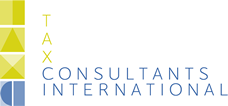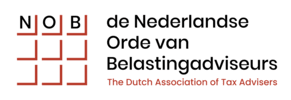VAT advice & compliance Accounting & Corporate Secretarial Services Global Mobility Services Mergers & Acquisitions International labor and cross border assignments International accounting Tax compliance
An overview of tax aspects for conducting a private business
In this Chapter, the following topics will be discussed :
- The taxation of income from a private enterprise
- When is there a business?
- Tax registration
- Book year
- Calculation of the taxable profits
- Fringe benefits/company car for private entrepreneurs
- Special tax regime for shipping activities
- Limitations for the deduction of expenses
- Tax exemptions for private entrepreneurs
- Roll over facilities in case of a merger, demerger or succession of the business
- Tax depreciation of assets
- Arbitrary depreciation
- Tax losses
- Special tax deductions for investments
- Provisions and fiscal reserves
- What we can do for you?
The taxation of income from a private enterprise
Any individual who conducts an own “business” in the Netherlands is considered to earn income in Box 1.
When is there a business?
Income from a private enterprise typically includes the sole proprietorship (in Dutch: “eenmanszaak”), independent contractors with multiple principals (such as freelancers) and many self-employed with(out) personnel (in Dutch: 'zelfstandige zonder personeel' or 'ZZP'er'). Professional income in essence also qualifies a business income.
The term 'business' is not defined in the law, but is based on case law. A business is an organization of capital and labor which aims to make a profit by participating in the market place.
It is required that the individual is personally liable for debts of the business. This condition disqualifies the income of many limited partners in a CV from the qualification of business income, but it can also give limited partners in a CV the entrepreneur status which do not conduct business activities themselves.
Profitability is the most important criterion to be met for the qualification of a business, but in daily practice the registration with the Chamber of Commerce is considered primary criterion by the tax authorities. Virtually every person or entity which conducts business activities in the Netherlands has the legal obligation to register with the Trade Register of the Chamber of Commerce.
Tax registration
A private business is a personal affair and does therefore not have to be registered separately for income tax purposes.
Registration for other taxes, like the VAT or the wage tax, may however be required.
Book year
In most cases the book year equals the tax year, which for individuals is always the calendar year.
However, if there are valid business reasons for the book year to deviate from the calendar year then this is possible under certain conditions.
Calculation of the taxable profits
Profits from a private business must be determined in line with Dutch Generally Accepted Accounting Principles (Dutch GAAP).
The basic concept is that profits equal turnover less expenses.
The tax law prescribes that the profits must be determined on the basis of 'sound business practice' (in Dutch: 'goedkoopmansgebruik'). This concept has been developed by case law and includes amongst others the principle of prudency: an entrepreneur is allowed to act prudently, which generally allows the taxpayer to defer profits until realization but to deduct expenses in the period when they accrue.
In most cases it is required to determine the profits on an accrual basis. Only in exceptional cases a profit calculation on a cash basis is allowed.
Work in progress must be included in taxable profits pro rata to the contract sum.
Fringe benefits/company car for private entrepreneurs
The profits include all amounts invoiced to third parties, but also all other benefits and income in kind originating from the business activity.
The most important category of income in kind is the company car.
For a car owned by the business (i.e. allocated to the equity of the private business) but that is also used for private purposes, a notional amount of income must be reported. This income is stated as a percentage of the value of the car whereby the age of the car and the CO2 emission are considered. For 2023: In general 22% for cars which are in use for less than 15 years, 35% for older cars and 16% on the first € 30,000 and 22% on the remainder if the CO2 emission is zero (some exceptions apply, some CO2 zero-emission cars can fully fall under the scope of the 16% tax rate).
The value of the car is in essence the catalogue value (purchase price new car) or if the car is in use for more than 15 years, the current market value of the car. Special rules apply for accessories, etc.
No income imputation is required if a car is used for less than 500 kilometers per year for private purposes. Commuting does not qualify as private use. The taxpayer bears the burden of proof by means of a complete and correct travel administration.
The income imputation for the company car can be reduced with certain expenses taken for own account.
No income imputation is required for a van which by its nature is deemed to be suitable for business use only. This status requires advance clearance from the tax office.
Special tax regime for shipping activities
The law provides for a special tax regime if the business assets include sea going vessels. Instead of actual profits, a fixed amount dependent on the tonnage of the ship can be reported as income.
Advance clearance is required to apply this special tax regime.
The rules for the tonnage tax regime are in essence the same as the rules which apply to corporations.
Limitations for the deduction of expenses
The primary condition for the deduction of expenses is that it regards expenses which are allocable to the business activities. The “at arm’s length principle” applies to expenses incurred from related parties.
The law also provides limitations for the deduction of certain expenses. Not deductible in whole are expenses relating to:
- maintaining a social status;
- vessels used for representation;
- most monetary penalties;
- convicted criminal offences;
- non-licensed weapons and ammunition;
- non-permitted animals;
- certain gifts, promises or services which constitute a criminal offence;
- the levy of dividend tax and betting and lottery tax;
- foreign taxes to which no regulation for the avoidance of double taxation applies.
The following expenses – including the related expenses of travel and stay - are in essence not tax deductible up to and amount of a certain threshold (€ 5,100 in 2023):
- the expenses of meals, drinks and stimulants;
- the costs of representation and entertainment;
- the costs of seminars, congresses, receptions, excursions and study trips.
The aforementioned expenses will be tax deductible to the extent these activities are directly related to the turnover of the business.
The taxpayer can elect not to apply for the aforementioned threshold, but instead deduct a certain percentage of these expenses (80%).
Special rules apply for the deduction of expenses relating to a workspace in a private residence.
The following expenses can be deducted to limited amounts in 2023:
- moving for business reasons: the actual cost of moving plus a fixed amount (€ 7,750);
- the cost of a second home for business reasons for a maximum period up to 2 years;
- for the business use of a private car a travel allowance of € 0.21 per kilometer;
- a certain amount of rent for the business use of privately owned assets.
Tax exemptions for private entrepreneurs
The law provides for exemptions for certain categories of business income, which conditionally include:
- an exemption of income from a qualifying forestry;
- capital gain on farm land caused by other factors than conducting the farm;
- profits arising from the waiver of debt;
- certain rights on pensions, allowances and annuities;
- certain state contributions and subsidies;
- certain disability allowances;
- certain income from third parties which has been subjected to the levy of wage tax.
Roll over facilities in case of a merger, demerger or succession of the business
In essence the profit realized with the liquidation or transfer of a business must be included in the profits of the year of liquidation/transfer. However, tax law provides for various roll over facilities, on the basis of which profit recognition can be deferred and/or rolled over to the successor.
The law provides for roll over facilities in the following events:
- a facilitated transfer of a business from a corporation to an individual;
- a facilitated share merger;
- a facilitated legal merger;
- a facilitated demerger;
- succession after divorce;
- succession after decease;
- entering into a partnership;
- conversion into a corporation (BV or NV).
In most cases the recognition of the taxable profits can be deferred or transferred to another party provided that existing tax claims are preserved. In most cases this is achieved by reporting the transfer for both the alienator and the acquirer against fiscal book value without taking into account goodwill.
Tax depreciation of assets
The rules for depreciation of business assets are in essence the same as the rules which apply to corporations.
Arbitrary depreciation
Certain business assets qualify for arbitrary depreciation. This option is only available for entrepreneurs that qualify for the start-up deduction.
Tax losses
If in a certain year the profits of a business are negative, the resulting loss can be offset against other income in Box 1.
For start-up losses a special rules applies: in the first year that the income qualifies as business income, the costs and expenses incurred in the preceding 5 years can be deducted provided that no corresponding income was generated during this period and the costs could not be deducted otherwise.
Special tax deductions for investments
The law offers a number of extra tax deductions for entrepreneurs that invest in business assets. There are investment deductions available for small investments, energy saving investments and environment friendly investments. The rules for the investment deductions are in essence the same as the rules which apply to corporations.
Provisions and fiscal reserves
The law allows the entrepreneur to form provisions for future expenses within certain limits. The main condition to be met is that the origin of a future expense must be found in factual/legal circumstances of the running book year.
The law also provides for the possibility to form fiscal reserves which allows within certain limits deferral of profit recognition:
- the cost equalization reserve: a deduction from taxable profits in a certain year for a reasonable allocation of future expenditures, for instance the maintenance of ships.
- the re-investment reserve: a deferral of capital gain realized with the alienation of business assets if there is the intention to make replacing investments.
- the fiscal old age reserve (in Dutch “Fiscale Oudedagsreserve” or “FOR”): a reservation for the pension of the private entrepreneur. From 1 January 2023, the FOR has been abolished.
The rules for the cost equalization reserve and the re-investment reserve are in essence the same as the rules which apply to corporations.
What we can do for you?
We are professional tax lawyers and we can advise you on your personal tax position and handle the preparation and filing of your annual Dutch personal income tax return and other tax compliance matters on your behalf.
We have very competitive rates for individuals and we can prepare and file your personal income tax return (and take care of other personal income tax compliance) on the basis of fixed prices which are agreed upon with you in advance. The price for a specific tax return is dependent on your personal circumstances and the service which you wish to receive from us.
Please feel free to use our ONLINE FEE CALCULATOR for determining the fixed fee which you would have to pay us for the preparation of your personal income tax return.


.png)



